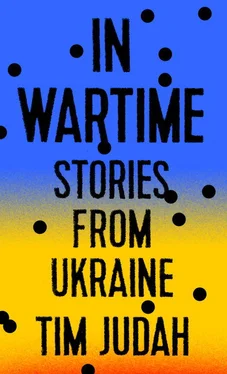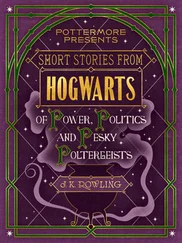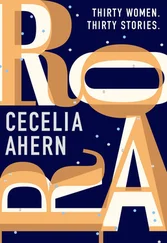On April 11 there were just a couple of hundred milling around in front of the regional administration building. The building flew Russian flags, Soviet flags and those of the new Donetsk People’s Republic, which had been proclaimed on April 7. In a city of 900,000 people there did not seem to be much popular support for the rebels, but there was also a climate of fear. Who knew what the future would hold? Still, those that were here were neither frightened nor shy about expressing their opinions. Yulia Yefanova, aged twenty-four, who was posing for pictures in front of a mock Russian frontier post which had been erected there, said she wanted the Donbass to unite with Russia because the ties were close and much of her family was there. Crowding around, people began to shout their opinions. “It is impossible to be friends with Europe and with Russia,” said one man. “They are like cat and dog.” Another said: “If Russia was here, she would put everything in order. She would fight corruption.” People shouted that the hardworking people of the Donbass subsidized lazy people in the center and west of Ukraine. Then, repeating the line pushed by Russia’s media, the people began shouting about Kiev’s “fascist junta.” Said one woman: “Only Russia can save us from a power which is not democratic!”
Three days later I was invited to the Seder, the Passover dinner, of the local Jewish community. As a guest from abroad I was asked to say a few words. I described the roadblocks I had seen outside the city and said that it looked to me like war was coming. Much of what I had seen was eerily similar to the beginnings of the Balkan wars. No one seemed to believe me. No one believed that their world was about to come crashing down. They clapped politely when I said that while the traditional Passover saying of “Next year in Jerusalem!” was fine, “Next year in Donetsk!” would be good too. Few who were present would be. Likewise, on the barricades no one really believed there would be fighting—because they thought Russian troops would soon come pouring over the border to finish off what they thought they were starting. Those who were euphoric and took snaps in front of the mock Russian frontier post had no inkling of what was coming. They thought of bigger Russian salaries and pensions and not of their tiny walk-on roles in starting a war that nobody expected or wanted.
This strange atmosphere lasted for a few weeks more. On May 9, the countries of the former Soviet Union celebrate Victory Day, the day when the dead of the Second World War are remembered and elderly men and women, dressed in their uniforms and bedecked with medals, are honored. In then rebel-held Sloviansk the ceremonies began in front of the Lenin statue in the town square. Old men and one woman stood in a line in front of it while rebel leaders, who had seized power here on the same day as in Donetsk, stepped forward to make speeches to about a thousand people. Given that the Ukrainian forces had by now surrounded the town, what was most surprising was the sheer emptiness of what was being said. Pavel Gubarev, then an important rebel leader, who had just been released in a prisoner exchange with the Ukrainians, said: “Fascism! It is coming for us again!” Then he talked of Novorossiya, the would-be new state he and his friends wanted to create from the south and east of the Ukraine they wanted to destroy, and finally he began proclaiming “Eternal glory!,” his voice rising and falling in dramatic cadences, referring to the fallen of the Second World War. As though at a religious service, or as if they were taking part in a mystical experience, the crowd, which was mostly but not entirely elderly, began to respond in unison:
“Glory!”
“Glory!”
“Glory!”
Then Gubarev said: “Glory to the heroes and victors of the Russian Spring!” by which he meant the anti-Ukrainian revolt in the east.
The crowd responded:
“Glory!”
“Glory!”
“Glory!”
At this point came a distraction. Five armored cars captured by the rebels drove down one side of the square and appeared on the other side, but they could not do a victory lap around it because the roads were blocked by concrete and other barricades. With militiamen sitting on top they drove up as far as Irina, the ice cream vendor, and then clumsily, in a cloud of exhaust fumes, had to back up to get out again. The sales girls from the local Eva, a cosmetics supermarket chain, and others ran out to cheer on their men, kiss them and give them cigarettes.
Thus the victories in 1945 and 2014 ran seamlessly into one another. At the same time Russian television, which many people had on in the background at home or in shops, was showing live footage of the huge military parade in Moscow, and later in the day of Vladimir Putin celebrating in newly annexed Crimea.
Now everyone moved off in a procession toward the war memorial. Victims of this new conflict, said one man in a speech when we got there, “would be lifted to the heavens on the wings of angels.” Then, flags were dipped for a brief silence. They were the DNR flag, Russian flags, communist flags and variations of old Russian imperial and tsarist flags. Then I spotted one I had never seen before. It was white with a big blue snowflake in the middle. Thinking this might be the flag of a new and significant political movement I shoved through the crowd to get to the man who was holding it. He told me that it was the flag of “Fridgers of the World” and that from Siberia to the Baltics “they are supporting us.” It took me some time to understand who the “Fridgers” were. They are people in the refrigeration business across the former Soviet Union who have an online forum to discuss issues relating to fridges and their maintenance.
Stepping away from children and old ladies weeping as they laid flowers at the eternal flame, I ran into sprightly Anatoliy, aged eighty-six, who was walking home, his chest decorated with medals, including one of Stalin. He had been too young to take part in the Second World War, he told me, but had seen action in 1956 in, as he called it, “the war with Hungary.” He described the anti-communist revolt there as one having been organized “by the remains of the pro-fascists” and thus it had been absolutely right to intervene. When I asked him about the current conflict he talked of “fascism” just like everyone else. “We want a free Ukraine,” he said, “but the Banderovtsi ”—the term once given to followers of Stepan Bandera and now used to insult the post-Maidan leadership and their supporters—“want to take control over the whole of Ukraine. We just want justice.” Josip Vissarionovich, he said, referring to Stalin, would never have let the country get in such a mess. He had had a writing table, a couple of chairs and a pipe. But “these presidents now surround themselves with gold. They have golden toilets and golden chairs.” He was talking about Ukraine’s leaders in general but I was surprised by his reaction when I asked him about Putin, whom many in the DNR and other pro-Russians in Ukraine see as a savior. In terms of gold, he said, “our presidents pale into insignificance next to him.”
Anatoliy’s face was smudged with lipstick. As a veteran he had been given flowers by children and kisses by women. I said I hoped I could be like him at his age and he said: “Your wife would kick your ass!” before briskly setting off home. Except for certain specific places where there had been fighting, the war still seemed remote and unreal to most people. When it began in earnest and as it dragged on, old people would suffer the most.
 Читать дальше
Читать дальше













